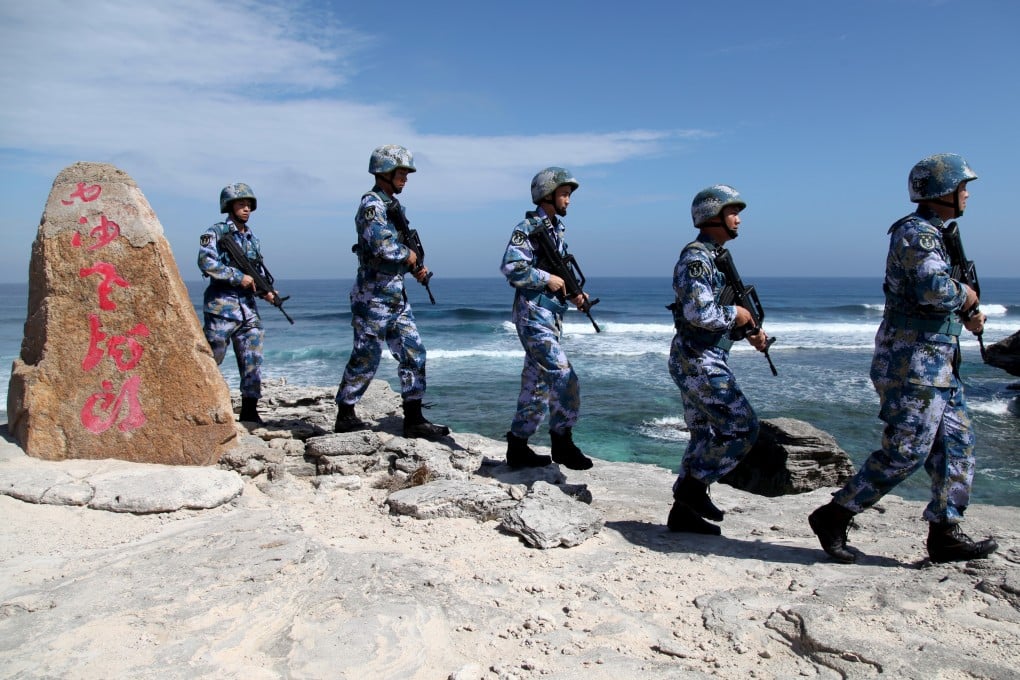Advertisement
‘Heightened risk’ of military conflict over South China Sea, observers warn
- Washington has hardened its position on the strategic waterway, rejecting most of Beijing’s claims
- China’s foreign ministry hit back, calling the US challenge ‘groundless’ and an effort to sow discord
Reading Time:4 minutes
Why you can trust SCMP

The risk of military conflict between China and the United States is rising, observers warn, after Washington hardened its position on the South China Sea and rejected most of Beijing’s claims to the resource-rich waterway.
US Secretary of State Mike Pompeo said in a statement on Monday that the US formally opposed a swathe of Chinese claims to waters within the so-called nine-dash line that encompasses almost all of the South China Sea.
While Washington has no sovereignty claims in the disputed waters, Pompeo said the US also rejected Beijing’s territorial or maritime claims to Mischief Reef and Second Thomas Shoal, in line with a Hague tribunal ruling in 2016.
Advertisement
The US rejected all Chinese claims beyond the 12-nautical mile territorial area around the Spratly Islands, citing in particular the waters surrounding Vanguard Bank off Vietnam, Luconia Shoals of Malaysia, the area within Brunei’s exclusive economic zone, and Natuna Besar of Indonesia. The statement also said China’s claims over the submerged feature James Shoal near Malaysia were unlawful.
“We are making clear: Beijing’s claims to offshore resources across most of the South China Sea are completely unlawful, as is its campaign of bullying to control them,” Pompeo said in the statement.
Advertisement
“The world will not allow Beijing to treat the South China Sea as its maritime empire.”
Advertisement
Select Voice
Select Speed
1.00x